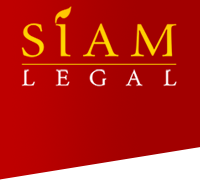US Visa Denied
 If your application is denied at the Embassy interview, the consular officer will give you a form explaining why the application was denied and whether you may be eligible to apply for a waiver of inadmissibility. This is true for both immigrant and non-immigrant visa applications.
If your application is denied at the Embassy interview, the consular officer will give you a form explaining why the application was denied and whether you may be eligible to apply for a waiver of inadmissibility. This is true for both immigrant and non-immigrant visa applications.
Sometimes you might not get a visa because you did not file all the required paperwork. Or the interviewer may request additional paperwork. Other reasons you may be denied a visa include health reasons, a criminal background, prior issues with U.S. immigration, being a member of a totalitarian party, and certain other rarer cases. In some cases your inadmissibility may only be for 3 or 10 years, and there may even be a waiver available to allow you to obtain a visa sooner. However, there are some reasons for inadmissibility that preclude you from ever getting a visa to the U.S.
Waivers are available for non-immigrant visa applications also, but non-immigrant waivers are temporary and do not require a special form or additional fees.
What do I do if I can apply for a waiver?
If you can apply for a waiver, you may file Form I-601 Application for Waiver of Grounds of Inadmissibility. Even if you can apply for a waiver, your specific circumstances may not meet the requirements for granting the waiver and issuing you a visa. In some cases, you may need to wait months or even years before you become eligible for a waiver. In addition, all waivers of inadmissibility are discretionary, so the visa may still be denied even if you have good evidence that you are eligible. It is advisable to contact an attorney to determine whether to file an application for waiver and how to convincingly present your specific situation.
If you are applying for a visa to be with family, such as a K visa, one of the most common reasons for granting a visa is extreme hardship to your family member in the U.S. This type of waiver is only available if your inadmissibility to the U.S. would cause extreme hardship to your spouse, child, parent, or fiance who is a U.S. citizen, lawful permanent resident or immigrant visa holder. To be eligible for this type of waiver you must be able to prove that you are related to the U.S. citizen or lawful resident. You may need to prove that they have stronger ties to the U.S. than to any foreign country or that it would cause financial, health related, emotional, cultural, safety or other problems for the U.S. citizen or resident to leave the U.S. The extreme hardship could also be a result of the impact of separation on your family member in the U.S., but separation alone is not enough to prove extreme hardship.
My visa application was denied for health reasons, what can I do?
If you were denied denied a visa for certain health reasons you may be eligible for a waiver. If you are eligible, you should file Form I-601 Application for Waiver of Grounds of Inadmissibility with the appropriate fee and any additional evidence required to prove you are eligible for the waiver.
If the problem is that you have a contagious disease of public health significance you may be eligible for a waiver of inadmissibility if you live in the U.S. and are a spouse or child of a U.S. citizen or legal permanent resident who abuses you or if you are a spouse, parent, unmarried child, or unmarried, minor adopted child of a U.S. citizen, lawful permanent resident (green card holder) or immigrant visa holder. This waiver is not available for fiances or their children. If you have class A tuberculosis, you will have to fill out additional paperwork.
If you were denied a visa because you have a physical or mental disorder and behavior related to the disorder might (or has already) threaten the property, safety or welfare of yourself or other people you will have to submit a complete medical report along with Form I-601. The medical report will be reviewed by the U.S. Public Health Service. The U.S. Public Health Service may make additional requirements.
While the easiest way to meet the requirement for proof of vaccinations is to be vaccinated, there are exceptions to the rule for adopted children under 10 years old who are sponsored by a U.S. family member. In addition, the vaccination requirement may be waived for people who oppose all vaccinations for religious or moral grounds or if an approved doctor certifies that the vaccination is not medically appropriate for you.
My visa was denied because I have a criminal background, what should I do?
If you were denied denied a visa because you have a criminal background you may be eligible for a waiver. If you are eligible, you should file Form I-601 Application for Waiver of Grounds of Inadmissibility with the appropriate fee and any additional evidence required to prove you are eligible for the waiver.
Purely political crimes, crimes committed both before you were 18 and over 5 years before you applied for the visa, and single crimes with a maximum penalty of not more than 1 year in jail and for which you were sentenced to less than 6 months in jail should not cause your visa application to be denied.
If you have been convicted of a violent or dangerous crime a waiver will not be approved except in extraordinary circumstances related to national security, foreign policy, or exceptional and extremely unusual hardship to your American relative.
Waivers for some crimes may not be available at all. You may be granted a waiver only for:
- Prostitution,
- Crimes that do not meet community standards of justice, honesty or good morals, such as fraud, theft, bribery, and murder,
- Simple possession of less than 30 grams of marijuana,
- Two or more convictions for which you were sentenced to over 5 years of total jail time,
- Commercialized vice, and
- Certain serious cases where you have asserted immunity.
If you were denied a visa for participating in prostitution, but you have been rehabilitated and are not a danger to U.S. security, welfare or safety you may be granted a waiver.
If you were denied a visa based on criminal activity over 15 years ago and you have rehabilitated and are not a danger to U.S. security, welfare or safety you may be granted a waiver.
You also may be granted a waiver if you live in the U.S. and are a spouse or child of a U.S. citizen or legal permanent resident who abuses you.
Finally, if the U.S. citizen or permanent resident spouse, parent or child who is sponsoring your immigrant or K visa application would experience extreme hardship if you were not allowed to enter the U.S. you may be granted a waiver for any of the crimes listed above. If you are a relative of a U.S. citizen, green card holder or immigrant visa holder you must be able to show that the citizen or legal resident would suffer extreme hardship if you could not join him or her.
My visa application was denied because I have had prior issues with U.S. immigration. What should I do?
Waivers are not available if you falsely claimed U.S. citizenship. And your visa will not be granted if you were involved in smuggling people into the U.S. But if you are eligible to apply for a waiver, you should file Form I-601 Application for Waiver of Grounds of Inadmissibility with the appropriate fee and any additional evidence required to prove you are eligible for the waiver.
If you were denied a visa because you lied to U.S. immigration authorities in the past, you may be eligible for a waiver if the U.S. citizen or permanent resident spouse or parent who is sponsoring your immigrant or K visa application would experience extreme hardship if you were not allowed to enter the U.S. You may also be granted a waiver if you live in the U.S., are a spouse or child of a U.S. citizen or legal permanent resident who abuses you and you or the U.S. citizen or permanent resident parent or child who is sponsoring you would experience extreme hardship.
If you were denied a visa because you were illegally present in the U.S. for over 180 days, you may be eligible for a waiver if the U.S. citizen or permanent resident spouse or parent who is sponsoring your immigrant or K visa application would experience extreme hardship if you were not allowed to enter the U.S.
My visa application was denied because I have been a voluntary member of a totalitarian or communist party. What should I do?
You may be eligible for a waiver if you are the parent, child, brother, sister, spouse or fiance of a U.S. citizen or a spouse or child of a green card holder. If you are eligible to apply for a waiver, you should file Form I-601 Application for Waiver of Grounds of Inadmissibility with the appropriate fee and any additional evidence required to prove you are eligible for the waiver. Waivers may be granted if you are not a threat to U.S. security and to ensure family unity or to meet humanitarian or public interest goals.
Category: US Fiancee Visa, US Immigration, US Spouse Visa
About the Author (Author Profile)
Siam Legal is a full service law firm but it has an extensive range of immigration, corporate, and real estate experience accessible to clients both domestically and internationally. It has offices strategically located throughout the major cities in Thailand including Chiang Mai, Pattaya, Hua Hin, Samui and Phuket along with international representative offices in Australia, London and Las Vegas.










